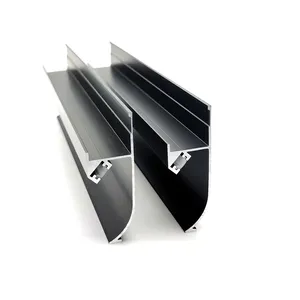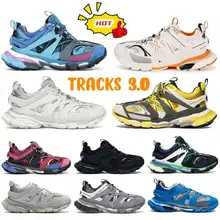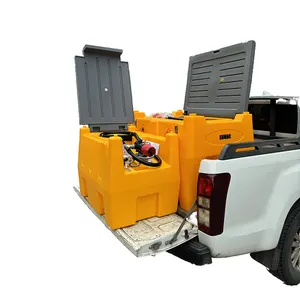What are Tanker
Tankers are large, specialized vessels designed for the transportation of bulk liquids such as oil, chemicals, and liquefied natural gas. They play a vital role in the global economy, enabling the mass movement of essential commodities across oceans and waterways. The construction and operation of tankers are governed by stringent international standards to ensure the safety and environmental protection due to the potentially hazardous nature of their cargo.
These maritime behemoths are engineered with robust hulls and internal compartmentalization, allowing for safe storage and segregation of different types of liquids. The design of a tanker is often dictated by its intended cargo; for instance, oil tankers are equipped with heating systems to maintain the viscosity of crude oil, while chemical tankers have coated tanks to resist corrosive substances.
Tankers operate on the principle of buoyancy and displacement, where they float because their weight is less than the weight of the water they displace. They are propelled by powerful engines that enable them to traverse vast distances, often with automation systems that aid navigation and operation. Due to their importance in energy supply chains, tankers are built for efficiency and reliability, ensuring that they can deliver their liquid cargo safely to its destination.
Types of Tanker
The tanker category encompasses a variety of vessels, each optimized for specific types of cargo and transport requirements. The common types include:
Oil Tanker: These tankers are specifically designed for transporting crude oil. They come in various sizes, from small coastal vessels to massive ultra-large crude carriers (ULCCs), with some capable of carrying millions of barrels of oil.
Chemical Tanker: These vessels transport a wide range of chemical liquids. They often feature specialized coatings or construction materials to prevent cargo contamination and protect the structural integrity of the tanker from corrosive substances.
LNG Carrier: Designed to transport liquefied natural gas, these tankers maintain their cargo at extremely low temperatures to keep it in a liquid state. They are equipped with sophisticated insulation systems to manage these cryogenic conditions.
Product Tanker: Smaller than crude oil tankers, product tankers carry refined products such as gasoline, diesel, or jet fuel. They often have an advanced system of pumps and pipelines for loading and unloading different products simultaneously.
Bitumen Tanker: These tankers transport bitumen used in road construction and roofing. They are equipped with heating systems to keep the bitumen liquefied for pumping since it solidifies at ambient temperatures.
How to choose Tanker
Selecting the right tanker involves careful consideration of factors such as capacity, material compatibility, and specific features suited to the type of liquid being transported. Businesses must evaluate:
Cargo Type: The chemical composition and properties of the liquid cargo determine the necessity for special materials or tanker coatings. For instance, chemical tankers often require stainless steel or specially coated tanks.
Capacity: The volume of liquid that needs to be transported should match the tanker's capacity. Larger cargoes may necessitate ULCCs or VLCCs (Very Large Crude Carriers), while smaller quantities might be more economically served by medium-sized or handy-sized tankers.
Regulatory Compliance: Ensure that the tanker meets all international regulations pertinent to its class, such as those set by the International Maritime Organization (IMO), especially concerning environmental safety standards.
Operational Range: Consider whether the tanker is suitable for long-haul international journeys or if it's meant for shorter regional distribution based on its design specifications and fuel efficiency.
By aligning these considerations with business needs, companies can make informed decisions when sourcing tankers through B2B marketplaces like Alibaba.com.
Best Tanker on Alibaba.com
Alibaba.com stands out as a premier online marketplace where businesses can source a wide array of tanker vessels tailored to their commercial needs. With an extensive list of suppliers from around the world, Alibaba.com offers unparalleled access to a diverse fleet of tankers suitable for any type of liquid transport requirement. Whether you're in need of an oil tanker capable of navigating international waters or a smaller chemical tanker for regional distribution, you will find options that adhere to rigorous industry standards while providing competitive pricing structures suitable for B2B transactions.
The platform’s intuitive interface facilitates easy communication with suppliers, allowing you to inquire about custom features or specific adaptations your business may require. Alibaba’s commitment to supporting small and medium-sized businesses is evident through services such as Trade Assurance which adds a layer of security by safeguarding payments until delivery is confirmed. This emphasis on reliable transactions underscores Alibaba.com's dedication not only to fostering global trade but also ensuring customer satisfaction in every deal made through its system.
Choosing Alibaba.com means partnering with a marketplace that understands the nuances of international shipping logistics and offers solutions that integrate seamlessly into your business operations. Whether expanding your fleet or entering new markets, Alibaba.com provides a streamlined path towards procuring high-quality tankers that catalyze business growth and operational success.
Common FAQs for Tankers
What is a tanker?
A tanker is a large vessel designed to transport bulk liquids such as oil, chemicals, and liquefied gases. They are essential in the global trade of liquid commodities, adhering to strict safety and environmental standards.
What are the key features of an oil tanker?
Oil tankers are equipped with heating systems to maintain the oil's viscosity and have a series of pumps and pipelines for efficient loading and unloading. They also feature robust hull designs to prevent spills.
How do chemical tankers differ from other types of tankers?
Chemical tankers have specialized coatings or are made from materials resistant to the corrosive effects of chemicals. They are designed to transport a variety of chemical liquids safely.
What are LNG carriers and how are they specialized?
LNG carriers transport liquefied natural gas at cryogenic temperatures. They have advanced insulation systems to maintain low temperatures necessary to keep the gas in a liquid state during transit.
What should be considered when choosing a tanker for business purposes?
Businesses should consider the type of cargo, tanker capacity, regulatory compliance, and operational range when selecting a tanker. These factors ensure the vessel meets the specific needs of the business's liquid transport requirements.
Can product tankers carry multiple types of refined products at once?
Yes, product tankers can carry different types of refined products simultaneously due to their advanced system of pumps and segregated storage compartments.
Why is it important for a bitumen tanker to have a heating system?
Bitumen solidifies at ambient temperatures, so bitumen tankers need heating systems to keep the cargo in a liquid state for pumping and unloading.
How does tanker capacity affect business operations?
Tanker capacity should align with the volume of liquid that needs to be transported; larger capacities can reduce per-unit transport costs but may require larger investments and higher operational costs.
Are there regulatory bodies governing tanker construction and operation?
Yes, international regulatory bodies like the International Maritime Organization (IMO) set standards for tanker construction, safety, and environmental protection.
What kind of maintenance do tankers require?
Tankers require regular maintenance including inspections, cleaning, repairs, and certification renewals to ensure they remain safe and compliant with maritime regulations.
How does suspension type affect tanker performance?
The type of suspension in a tanker, such as mechanical or leaf spring suspension, affects the stability and smoothness of transport, which is crucial for safely carrying liquid cargo over long distances.
What is the significance of emission standards in tankers?
Emission standards like Euro 2, Euro 5, and Euro 3 determine the environmental impact of the tanker's engine emissions. Compliance with these standards is important for environmental protection and may be required by law in certain jurisdictions.
Can all tankers transport any type of liquid?
No, tankers are often specialized for certain types of liquids. For example, some are designed specifically for chemicals or oil, while others may be built to carry food-grade liquids like milk.
How does drive wheel configuration impact a tanker's maneuverability?
Drive wheel configurations (e.g., 6x4, 4x2) affect a tanker's traction and maneuverability. The right configuration depends on the typical routes and conditions under which the tanker will operate.
Why might a business choose an aluminum alloy tanker over a steel one?
Aluminum alloy tankers are typically lighter than steel ones, which can mean better fuel efficiency and higher payload capacity. However, they may not be suitable for all types of cargo due to material compatibility issues.









































 浙公网安备 33010002000092号
浙公网安备 33010002000092号 浙B2-20120091-4
浙B2-20120091-4